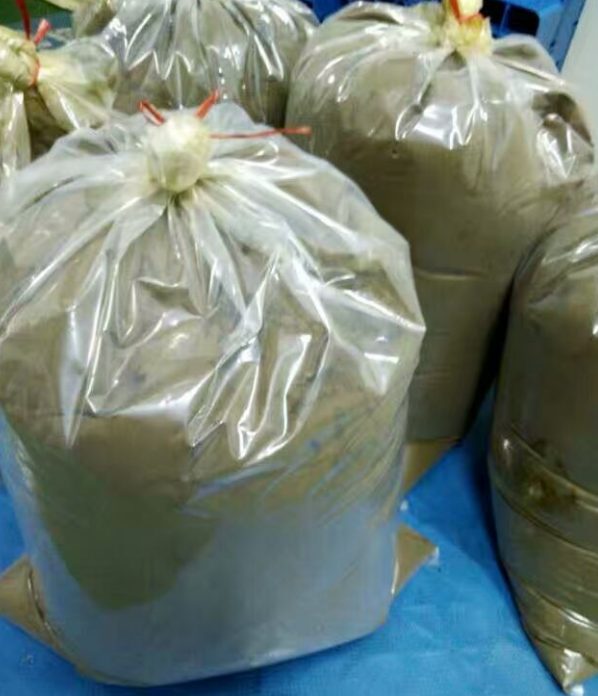Echinacea angustifolia, also known as narrow-leaved coneflower, a vibrant flowering plant native to North America, has been revered for centuries for its purported medicinal properties. The plant’s roots, leaves, and flowers were carefully harvested and prepared as extracts, teas, tinctures, and poultices, often used to address ailments ranging from wounds and infections to colds and flu-like symptoms. In this article, we’ll delve into the diverse applications of Echinacea angustifolia, exploring its role in boosting immune health, managing respiratory conditions, and more.
The herbal remedy has also gained popularity for its various uses in modern wellness practices with Echinacea angustifolia extract. The supplements are widely available in various forms, including capsules, tinctures, and teas. Echinacea angustifolia extract is composed of various bioactive components that contribute to its potential health benefits. These components include:
- Alkamides: These are lipophilic compounds found in Echinacea angustifolia that are believed to contribute to its immune-stimulating effects. Alkamides are thought to interact with cannabinoid receptors in the body, potentially influencing immune responses.
- Polysaccharides: Echinacea angustifolia contains complex carbohydrates known as polysaccharides. These compounds are believed to play a role in modulating immune activity by interacting with immune cells and promoting cytokine production.
- Echinacoside: Echinacoside is a phenolic compound found in Echinacea angustifolia that possesses antioxidant and anti-inflammatory properties. It’s thought to contribute to the plant’s ability to combat oxidative stress and reduce inflammation.
- Chicoric Acid and its derivatives: Chicoric acid is a phenolic compound present in Echinacea angustifolia that contributes to its immune-modulating effects and antioxidant properties. It’s believed to interact with immune cells and promote cytokine production, as well as its ability to scavenge free radicals and protect cells from oxidative damage.
- Flavonoids: Echinacea angustifolia contains various flavonoids, such as quercetin and apigenin, which have antioxidant and anti-inflammatory properties. Flavonoids are believed to support immune function and overall health.
- Essential Oils: The plant’s essential oils contain volatile compounds that contribute to its distinctive aroma. These oils are thought to have antimicrobial properties and may play a role in supporting respiratory health.
- Polyacetylenes: These compounds are known for their potential antimicrobial properties. They might contribute to Echinacea angustifolia’s ability to combat infections and support overall immune health.
- Glycoproteins: Echinacea angustifolia contains glycoproteins, which are protein molecules with attached carbohydrate chains. These molecules may interact with immune cells and play a role in immune response modulation.
- Vitamins and Minerals: Echinacea angustifolia extract also contains vitamins and minerals that contribute to its overall nutritional profile. These nutrients can support various bodily functions, including immune health.
Benefits of Echinacea angustifolia extract
Strengthening immune system
Modern research has shown that Echinacea angustifolia may play a role in enhancing the body’s defense mechanisms. Several active compounds, such as echinacoside and alkamides, are believed to stimulate immune cells and promote overall immune function. Regular consumption of Echinacea supplements or extracts might help the body ward off common illnesses.
Alleviate Cold and Flu
Echinacea angustifolia’s potential to alleviate cold and flu symptoms has captured the attention of researchers and health enthusiasts alike. Some studies suggest that using Echinacea supplements during the early stages of cold symptoms could reduce their severity and duration.
Help for Respiratory Health
Due to its anti-inflammatory properties, Echinacea angustifolia might be beneficial in managing respiratory conditions. It could potentially help alleviate symptoms associated with bronchitis, asthma, and allergies, contributing to improved respiratory well-being.
Reduce anxiety
In recent laboratory studies, Echinacea angustifolia extract is found effective in reducing anxiety. Studies have shown that the plant’s alkamides, rosmarinic acid, and caffeic acid also can reduce anxiety levels. However, further studies are needed on humans.
Good for Skin and Wound Healing
Beyond its internal benefits, Echinacea angustifolia has also been explored for its potential effects on skin health. Some topical applications containing Echinacea extracts might aid in wound healing and promote healthier skin due to its antimicrobial and anti-inflammatory properties.
Echinacea angustifolia extract continues to captivate our interest with its extensive history and potential health benefits. From its traditional use among indigenous cultures to its relevance in modern-day health practices, this herbal remedy offers a diverse range of applications. Whether you’re seeking immune support, respiratory relief, or skin health enhancement, Echinacea angustifolia stands as a testament to the power of natural remedies. Please note when incorporating Echinacea into your wellness routine, it’s important to follow recommended dosages and consult a healthcare professional, especially if you have underlying health conditions or are taking medications.
More info:
Difference Between Echinacea purpurea, angustifolia, and pallida
Echinacoside Extraction and Separation From Echinacea Herb
Is Echinacea Angustifolia Root Extract Help For Anxiety?
What Is Echinacea Angustifolia Used For?
- Dandelion Extract: What It Is, Benefits, Uses and Side Effect - April 23, 2024
- Is Berberine Extract Help For Weight Loss? - April 11, 2024
- Why Is Pysllium Husk Powder A Popular Meal Replacement Ingredient? - April 3, 2024




